I have built an orchestration with a loop to retreive paged data from REST web service. From page size and offset I am able to call the service for "next page" of data. Then I debatch it, map it to internal format and process it further. When one page is processed, I request next page from the REST web service.
As it turns out, the host running the orchestration and send ports causes the memory to constantly grow during processing of all the data, and eventually hit the throttling mode.
Why is memory not released when I am done with one page loop? Is it the "consumed" messages that are stored in the orchestration that builds up the memory? Is it possible to clear orchestration from these "consumed" messages, to release the memory used? (No message tracking active on the orchestration, or send ports.)
